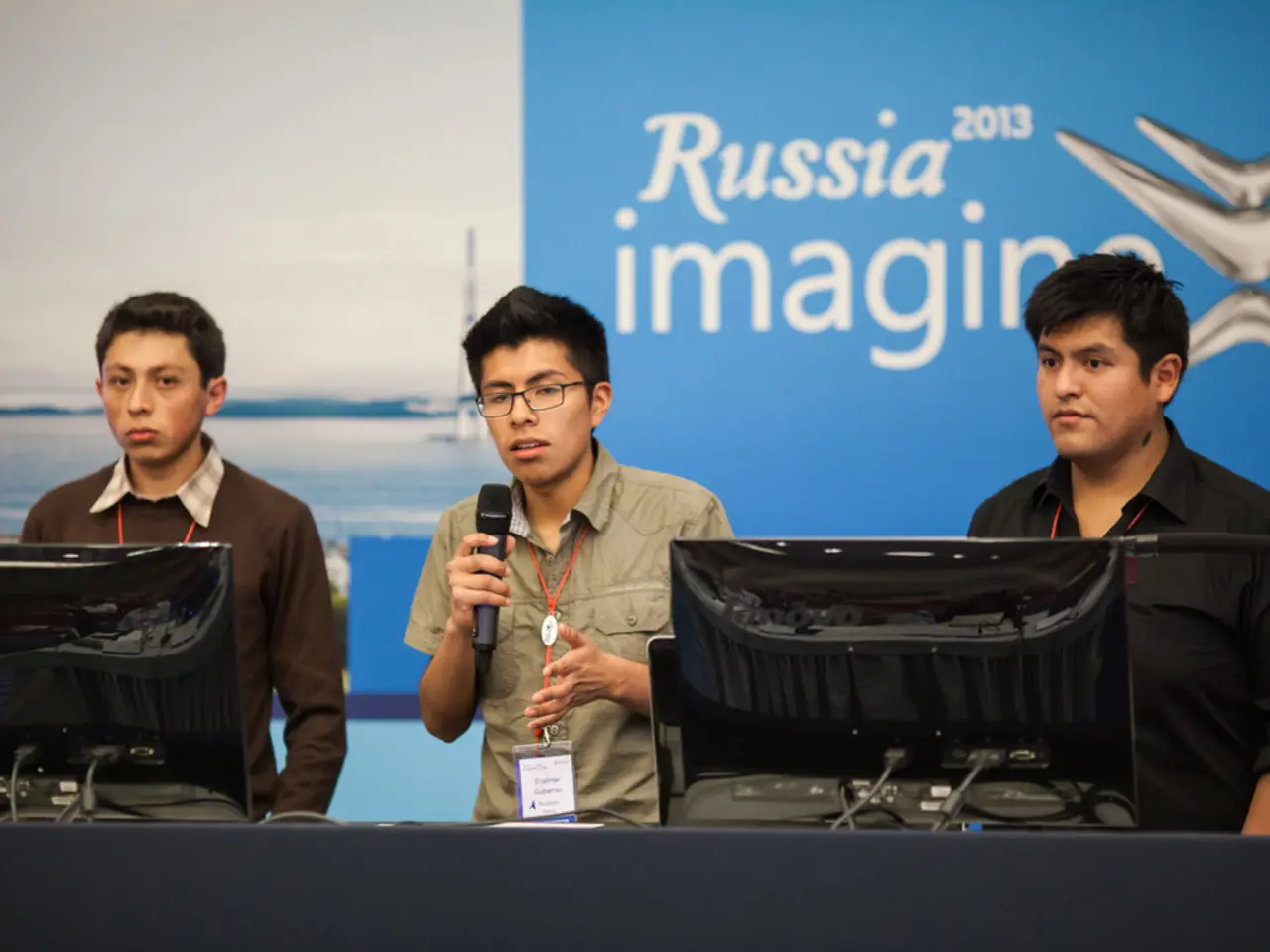China urges AI companies to steer clear of Nvidia's H20 GPUs due to trust issues
In a move that has raised eyebrows globally, Chinese authorities are reportedly pressuring major AI firms to avoid purchasing and using NVIDIA's H20 AI chips, particularly in government and national security arenas. The concerns stem from allegations of potential national security risks associated with these chips.
The Chinese Cyberspace Administration (CAC) has summoned NVIDIA over fears that the H20 chips might have "location tracking" features and could be remotely shut down, posing risks to Chinese cybersecurity and sovereignty. NVIDIA has vehemently denied these allegations of backdoors or remote control capabilities.
This move follows a broader context where the U.S. had initially banned NVIDIA’s most powerful AI chips (Blackwell) sales to China in 2025 to protect U.S. national and economic security amid the global AI race. The sale of the H20 chips, which are less powerful and designed to comply with U.S. export controls, was briefly allowed again due to trade negotiations but has since faced pressure from Beijing to halt purchases amid continued security suspicions.
China’s emphasis on "chip sovereignty" and developing domestic AI chips (e.g., by Huawei) adds to its caution about reliance on foreign AI hardware that could pose security risks or surveillance possibilities.
The Trump administration prohibited sales of NVIDIA's H20 GPUs to China in April, resulting in a significant financial loss of $5.5 billion for NVIDia. However, the U.S. government recently reversed this ban, a decision that has sparked ongoing concern from Chinese officials about ulterior motives.
NVIDIA's CEO, Jensen Huang, has expressed concern about removing American-made AI chips as the global standard, giving China's AI market to rivals like Huawei. In response, Huang reportedly reached an agreement with President Trump regarding the reversal of the AI GPU export ban.
China could drop a full ban on Chinese customers investing in NVIDIA's H20 AI GPU at any time. In the meantime, key tech firms like Tencent and ByteDance have received inquiries from the Ministry of Industry and Information Technology (MIIT) regarding their purchases of NVIDIA's H20 GPUs. A new 15% levy has been imposed on any NVIDIA's H20 or AMD's MI308 AI GPUs sold to China by the US government.
NVIDIA, the leading supplier of AI GPUs globally, has estimated a need for 300,000 more H20 AI chips from TSMC to meet China's demand. In an effort to assuage concerns about the security of its H20 GPUs, NVIDIA published a blog post titled "No Backdoors. No Kill Switches. No Spyware."
President Trump, during an August 11 press conference, called NVIDIA's H20 chips "obsolete." Despite this, China is concerned about its NVIDIA equivalents falling too far behind in the AI chip race. This tension highlights the complexities and geopolitical implications of the global AI race.
- NVIDIA's H20 AI chips, a crucial component in the global AI market, are currently under scrutiny by Chinese authorities due to potential national security risks.
- The Chinese Cyberspace Administration (CAC) has summoned NVIDIA over accusations that H20 chips might have "location tracking" features and could be remotely shut down, posing risks to Chinese cybersecurity.
- The U.S. initially banned sales of NVIDIA’s most powerful AI chips to China in 2025, but the sale of the less powerful H20 chips was briefly allowed again due to trade negotiations.
- In the technology sector, China places great emphasis on "chip sovereignty" and developing domestic AI chips, aiming to reduce reliance on foreign AI hardware that could pose security risks.
- Key Chinese tech firms, such as Tencent and ByteDance, have received inquiries from the Ministry of Industry and Information Technology (MIIT) regarding their purchases of NVIDIA's H20 GPUs.
- NVIDIA, faced with pressure from Beijing to halt purchases and concerns about falling behind in the AI chip race, estimates a need for 300,000 more H20 AI chips from TSMC to meet China's demand.




